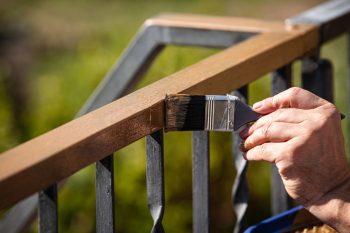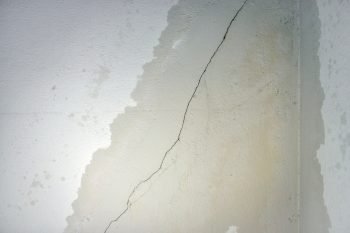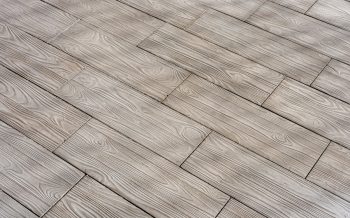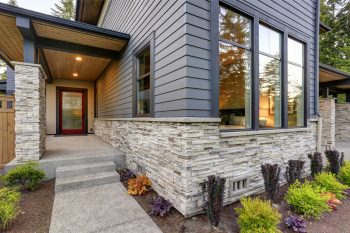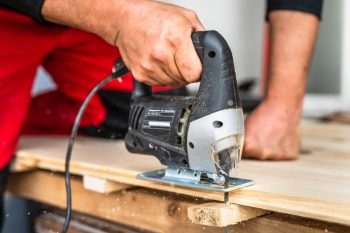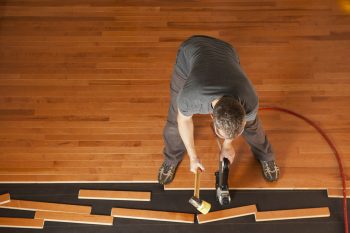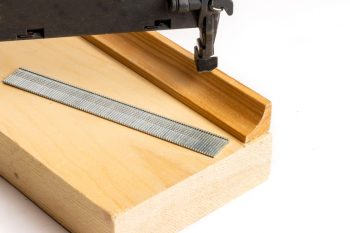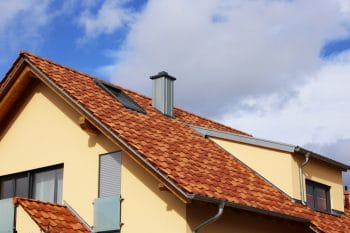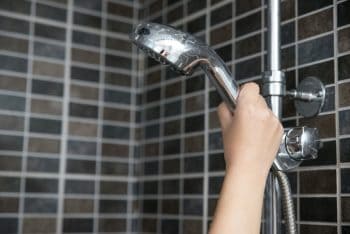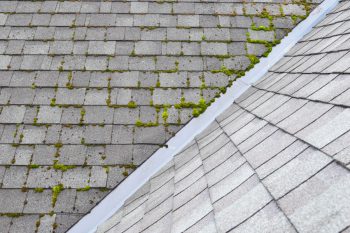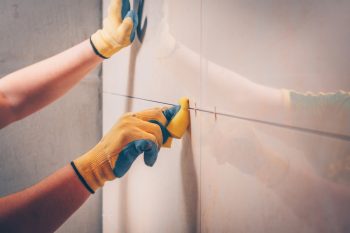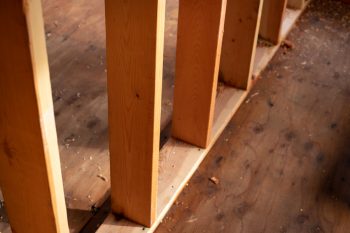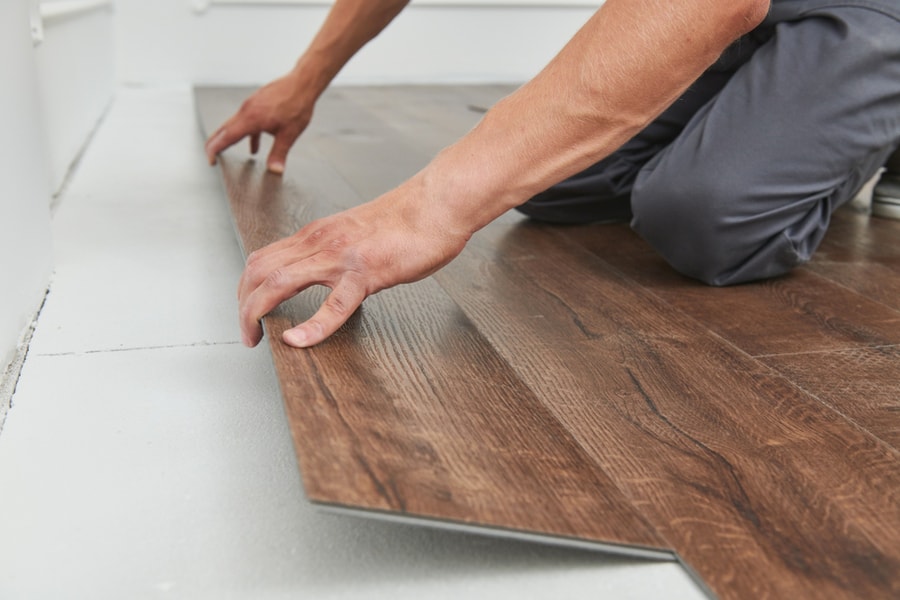
If you’ve noticed hot floors in your home, there are several possible causes. Most things on this list are simple causes that don’t require action. One of the possible causes is more problematic and will require immediate attention.
If you’ve noticed a hot spot on the floor of your home, it is vital to investigate the issue and determine the cause.
There are several potential reasons. They are:
- There is a downlight in the ceiling beneath the flooring.
- There are hot water pipes beneath the flooring.
- There is ductwork under the flooring.
- A hot water pipe beneath your concrete slab is leaking.
- Your crawlspace is getting hot.
Let’s walk through each possibility and determine which one is causing your floor to feel hot.
Let’s Investigate
You won’t even need your toolbox. You’ll need to analyze your home and consider what makes your floor warm. Oh, and maybe a ladder or stool.
1. Downlight in the Ceiling
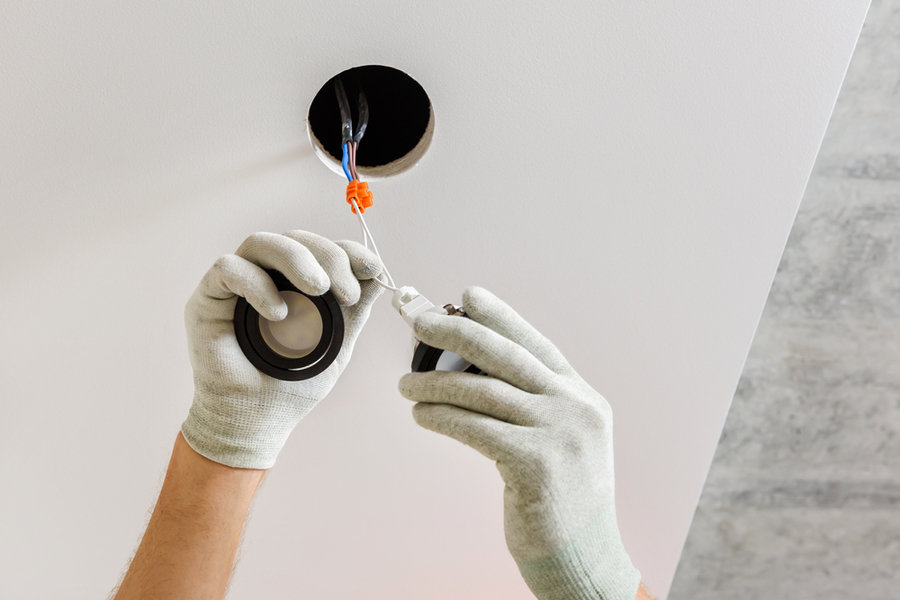
Good news! If this is your problem, it’s easy to solve. Make a note of where your hot spot is. Now, go to the room beneath it. Is there a “downlight” there? A “downlight” is a light fixture mounted into or on the ceiling that shines light down.
Place your hand near the light fixture, using a ladder or stool if necessary. Can you feel any heat coming off the light fixture?
If you answered yes, this is the cause of your warm flooring.
This one is an easy fix. As easy as changing a light bulb. If your bulb gives off heat, it is likely an incandescent or a fluorescent bulb. There has been a significant shift away from these bulb types in the past decade, as consumers and builders have found LED lighting superior. LED lights last longer than old bulb types, require less power (saving you money on your electric bill), and give off very little heat.
Swap out your outdated bulbs with LED bulbs. Kits are available to swap out recessed light bulbs (also known as ‘can’ lights).
If the LED bulbs do not solve the problem, you need to call an electrician to determine if the light fixture is faulty.
2. Hot Water Pipes
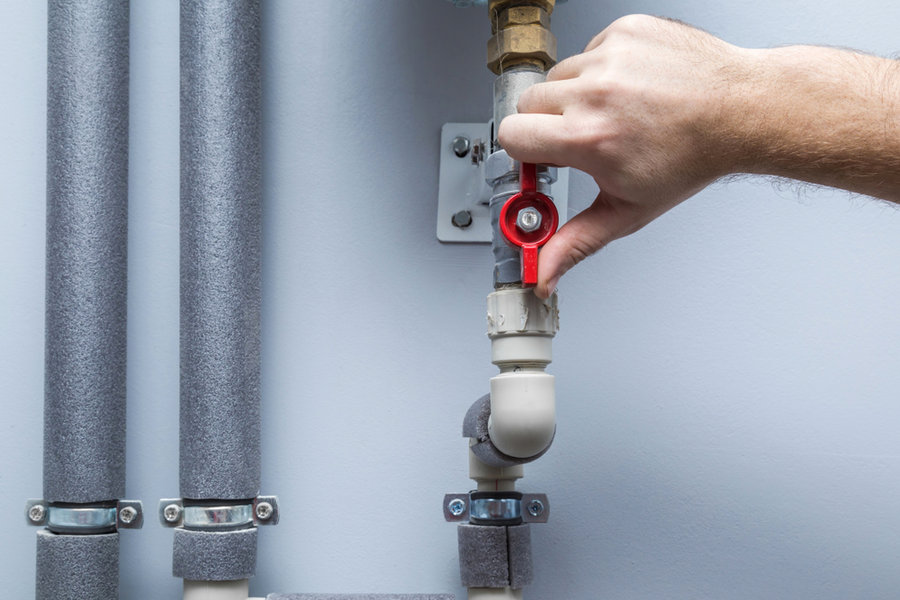
Homes have hot and cold water pipes running through the walls and flooring. This unseen plumbing in our homes delivers water to our bathrooms, kitchens, and wet bars – anywhere there is a faucet, there is a pipe running to it.
Is the hotspot on your floor near a faucet with a hot water valve? A hot water pipe under your flooring might make your floor feel warm.
Take a look at your water heater and see if you can determine the path the hot water pipes take through your home. Are there hot water lines where your floor feels warm?
To know for sure, check the hot area on your floor when no hot water has run to your fixtures for a while. It should be a normal temperature. Now run hot water to your fixtures. Does your floor feel hot? It’s the pipes.
If a hot water pipe is causing your balmy floor, you probably don’t need to do anything about it.
However, if the hot spot on your floor is new, it may indicate that a pipe is leaking. Look for telltale signs like wetness and water staining. If the warm area on the floor is on the second story of your home, inspect the ceiling in the room below for damage.
Contact a plumber or contractor immediately if you see signs of leaking. The damage will continue to spread and worsen if you do not fix the pipe.
Fortunately, a leaky pipe is unlikely – you almost certainly would have seen signs of water damage before noticing a hot floor.
3. Ductwork Under the Floor
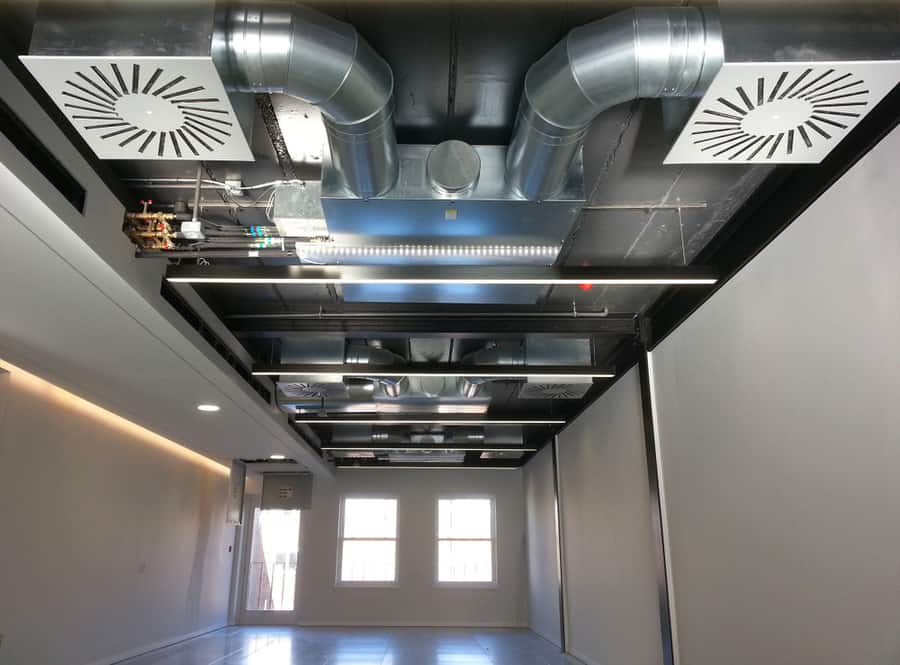
If you live in a cold climate, you heat your home in the winter. Your furnace pushes the heated air through the ductwork and out registers throughout your home.
Though unseen, ductwork often runs under your flooring. If you’ve ever been in a basement that has unfinished ceilings, you’ve seen the metal heat runs that travel between your home’s joists to heat diffusers placed throughout your home.
Is the hot spot on your floor near a register or heat diffuser? The cause is likely to be hot air running through the ductwork.
There is a simple test to determine if your ductwork makes your floor feel hot. Turn off your furnace. Check back in 15 minutes. If the hot spot has gone, then hidden ductwork was the culprit.
If you determine that ductwork is why your floor feels hot, it is normal, and no further action is required.
4. Slab Leak
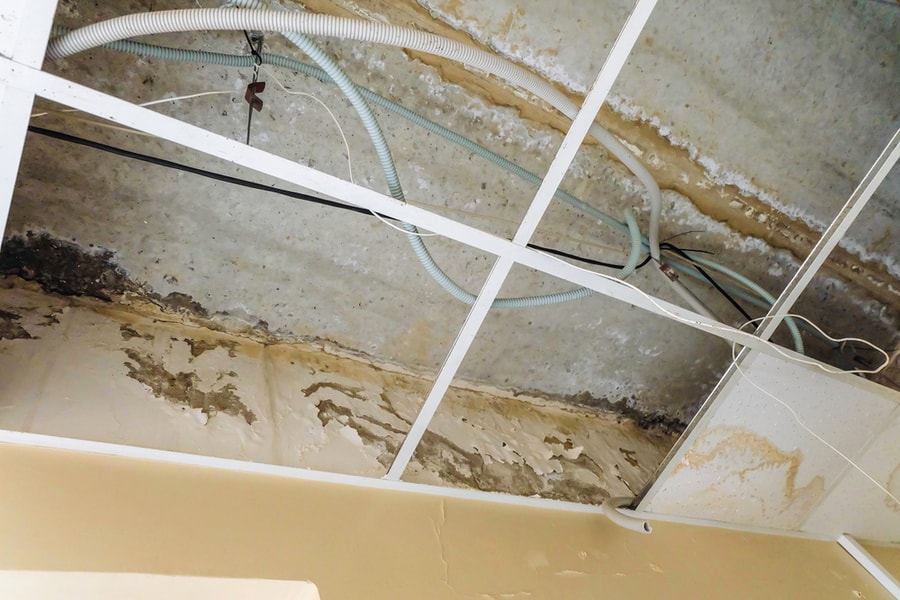
A slab leak means that a hot water pipe beneath your concrete slab is leaking.
Slab-built homes are built directly onto a concrete pad or “slab.” These homes do not have a basement. These slabs have plumbing pipes running underneath them. If the soil beneath the slab moves, the slab can shift, which may cause the pipes beneath it to crack.
Do you have a slab-built home, and is the hot floor on the bottom level of your house? It could be a slab leak.
Some signs that will indicate a hot water pipe in your concrete slab is leaking include:
- High water bills.
- Water stains.
- Water damage to flooring (bulging, warping, lifting, etc.).
- Gurgling sounds.
- The sound of water running, even when all no water lines are turned on.
Contact a contractor if you believe that a slab leak is why your home’s floor feels hot. Left unfixed, the leaking pipe will continue to erode the soil beneath your slab, causing further damage.
Slab leaks are a significant repair involving locating the broken pipe, removing the floor above it, fixing the pipe, and finally fixing the floor above it.
5. Your Crawlspace Is Getting Hot
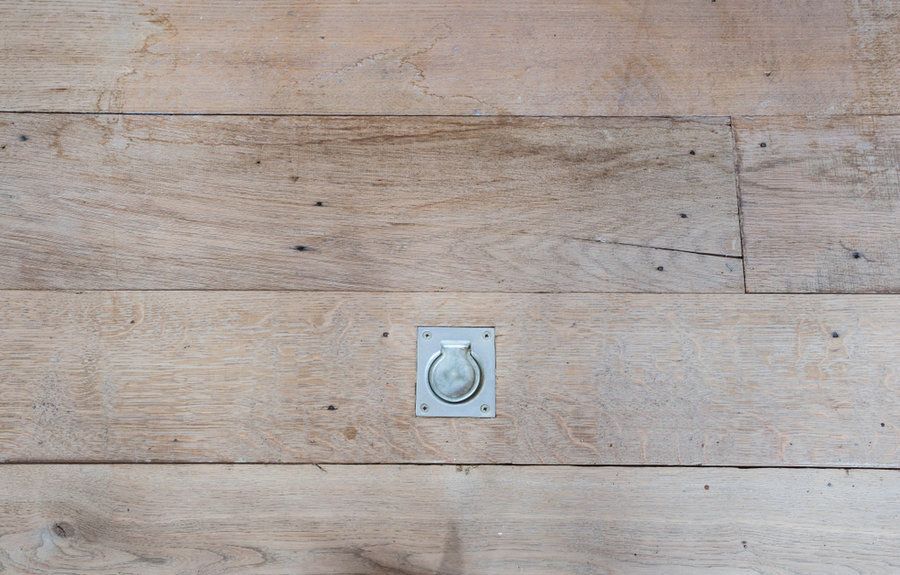
Does your home have a crawlspace? Warm air and humidity can get trapped in the crawl space if it is sealed well. This warming will affect the flooring above it, making it feel hot.
Warm air from the crawlspace is not detrimental to your home unless your crawlspace is trapping water. No further action is required.
That’s Why Your Floor Feels Hot
We’ve covered the five potential reasons your floor feels hot. Downlights in the ceiling, hot water pipes, ductwork under the roof, slab leak, and crawlspaces are all things that could be warming your floor.
Fortunately, they do not need to be repaired or likely require minor fixes. Slab leaks, however, are a significant repair that requires immediate attention.
Hopefully, you’ve managed to figure out which of these issues was affecting the floor in your home, and you have taken the appropriate action.
